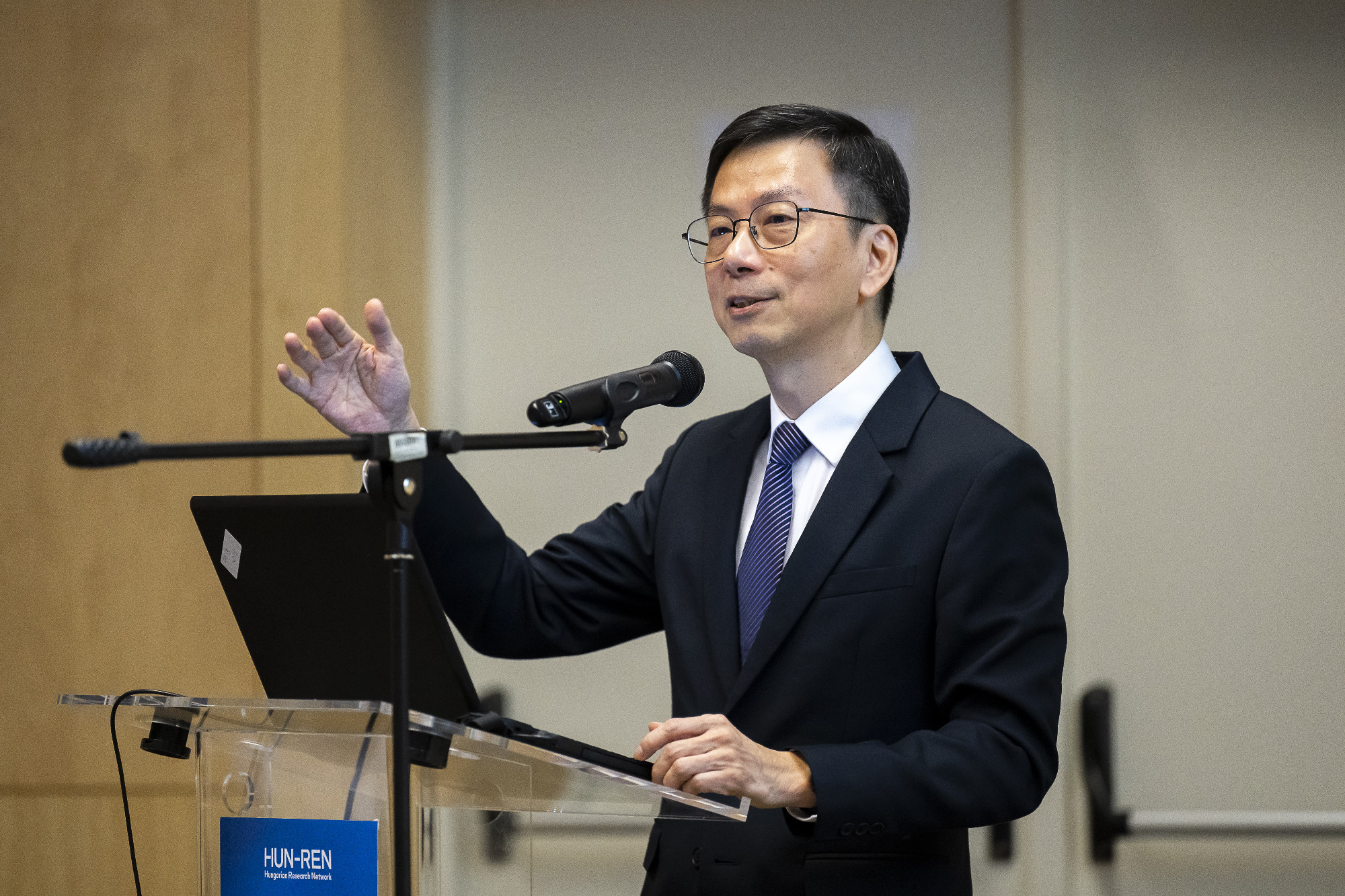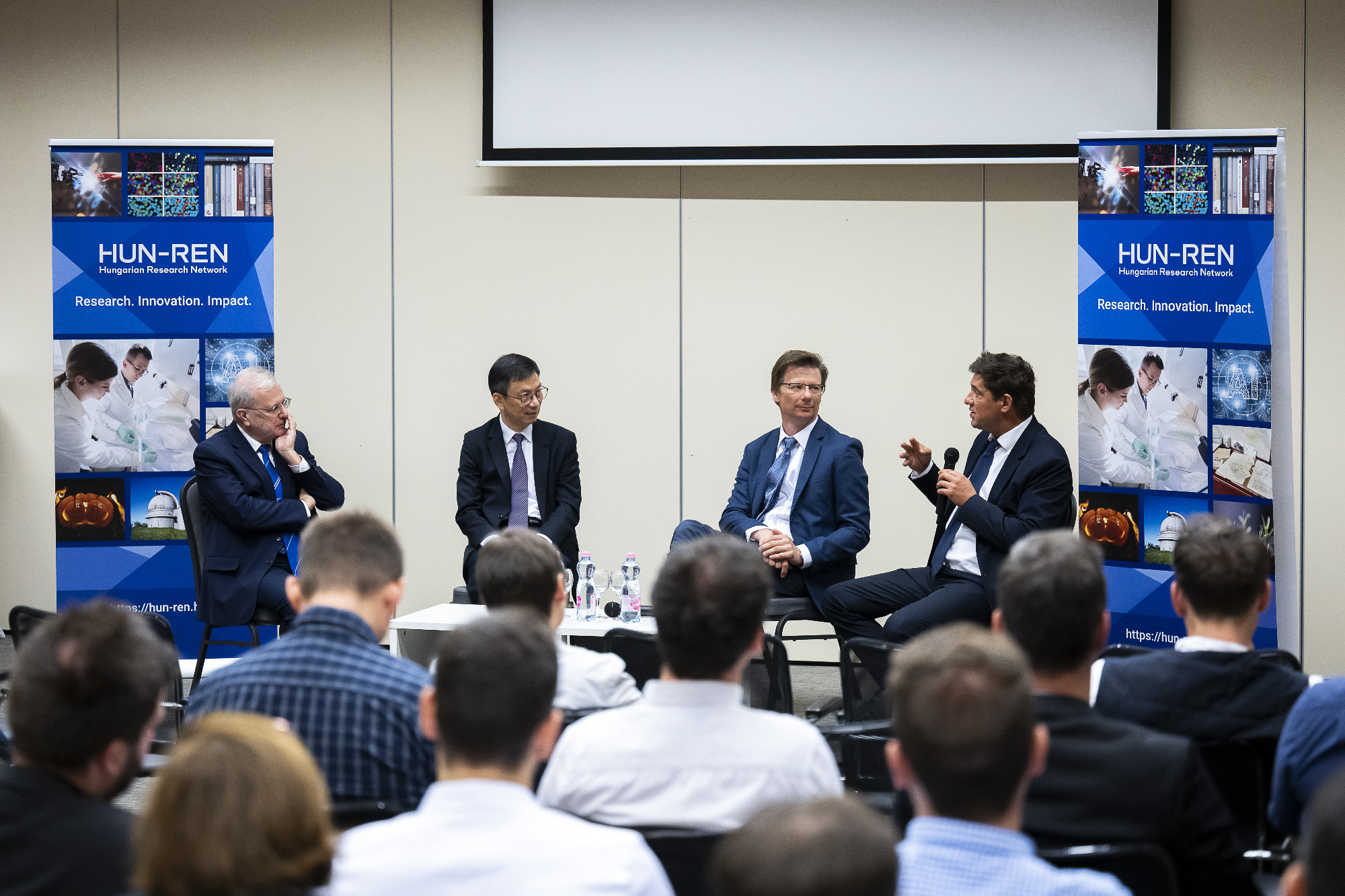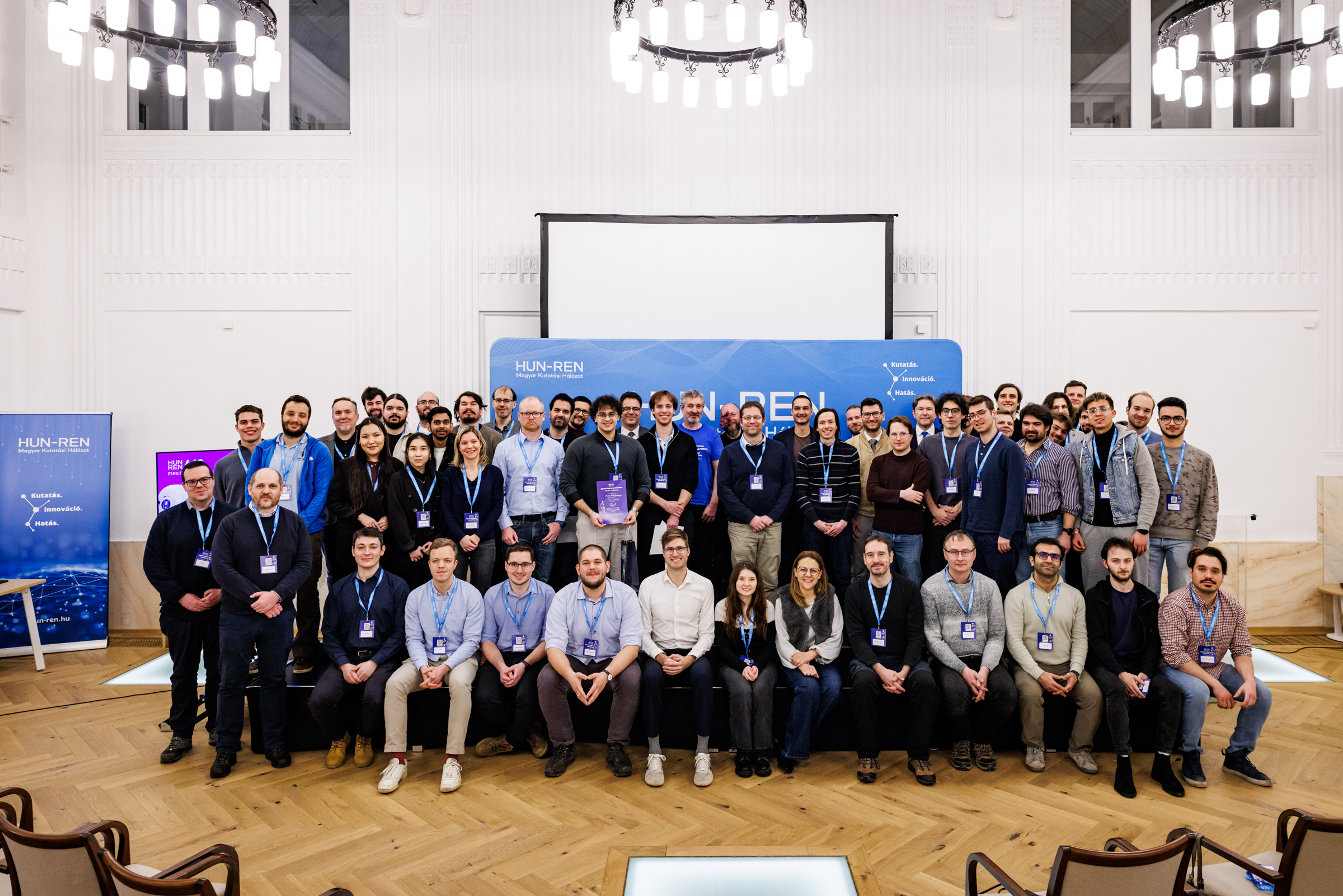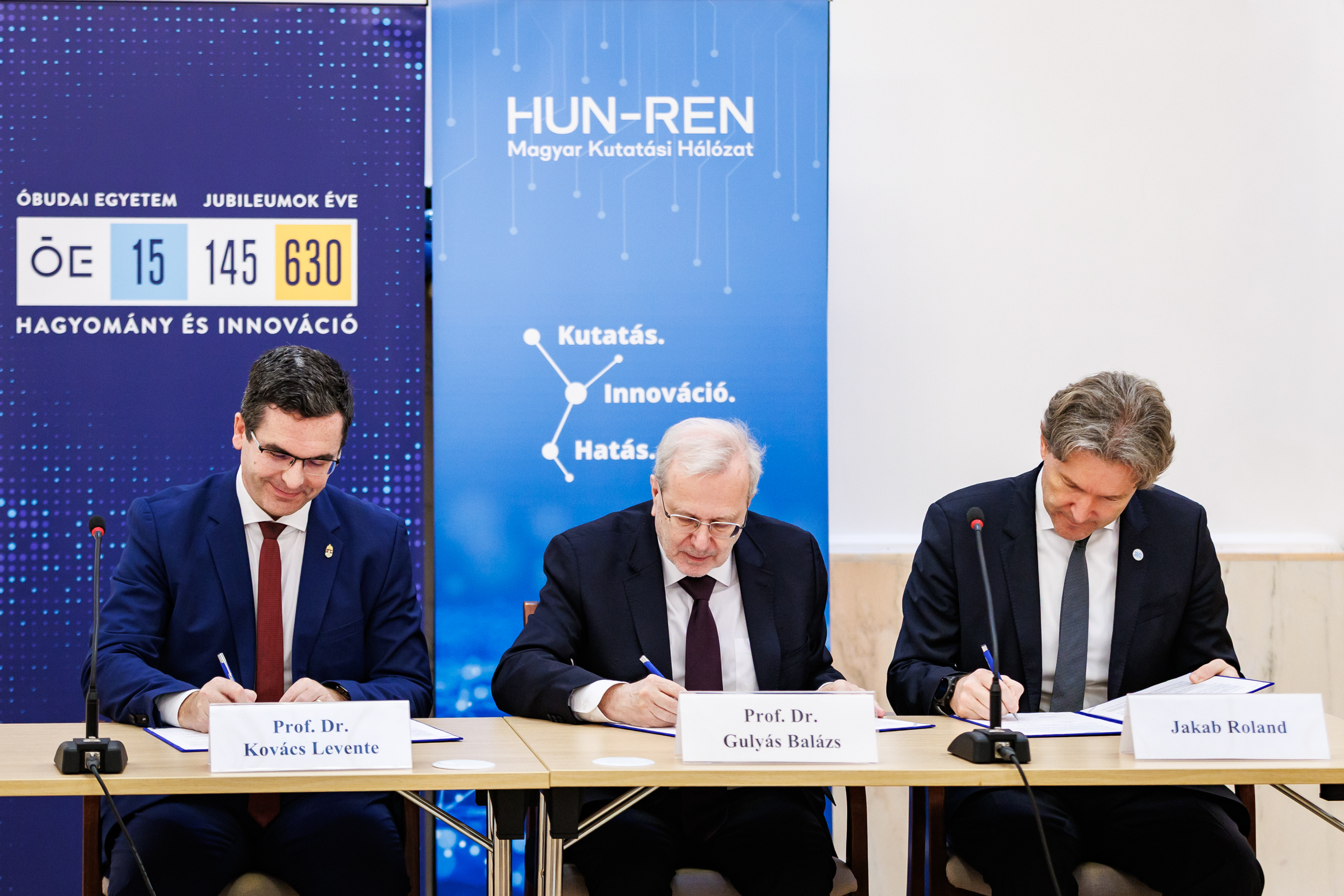"Learning from the Best"
The renewing HUN-REN should adopt the best international practices—this was the key message from President Balázs Gulyás as he opened the World Scientific – HUN-REN Publishing Day event, sharing his personal experience in publishing scientific books. The event also featured presentations by leaders from the World Scientific Publishing Company (WSPC) on the relationship between science and AI, along with practical advice on how researchers can increase their visibility.
Last Friday, HUN-REN researchers met with leaders from the world-renowned Singapore-based WSPC for a half-day workshop. President Balázs Gulyás, who has published several books with WSPC, was delighted to introduce the publisher to the HUN-REN research community, hoping for fruitful collaborations to promote Hungarian science and HUN-REN's research achievements.
In his opening speech, the President noted that HUN-REN has accumulated a wealth of research value and that it is not the quality of the researchers but organisational and operational shortcomings that place the research network in the middle of international rankings. He emphasised the adoption of the world's best practices as a path to renewal, describing it as 'polishing the diamond in our hands to create a first-class network.'
Balázs Gulyás said, 'HUN-REN aims to be the flagship of the Hungarian research ecosystem. A key part of this is improving publication excellence, because it's not enough to be good—you also have to demonstrate it. This means increasing citation rates. We can learn a great deal from one of the world's leading publishers on how to achieve this.'
The workshop was just the first step in a collaboration between WSPC and HUN-REN that could eventually develop into a strategic partnership with the publisher, producing 600 books and 170 scientific journals a year.

Rick Lee, General Manager of WSPC
Photo: Erdős Dénes
"Can ChatGPT be a co-author of a scientific article?" asked Rick Lee, General Manager of WSPC, posing one of the most pressing questions on the minds of researchers today. As the first speaker at the conference, he explored an important topic: the significant impact of AI on science and publishing. In his presentation, he explained how crucial it is for researchers and journals to closely monitor the emergence of AI in the field. He also pointed out the need to be aware of AI's presence when reading publications. He emphasised the importance of a critical approach to incorporating AI into research, recommending that any task performed with AI be double-checked. However, he added that AI, when used appropriately, can assist researchers in several ways. "We can't run away from it; we have to face it head-on," said Rick Lee. Whether it’s suggesting language or text edits, creating infographics, or increasing collaboration and citations, AI can be a valuable ally in science.
Yee-Hong Khoo, Marketing Director at WSPC, then offered practical advice to researchers and research networks regarding citations. She presented several effective examples of how to enhance the visibility of researchers and their publications, as well as how to create well-structured profiles for citations. She emphasised that researchers must not fall behind in their online presence. According to her, it is important to post results on major social media platforms—beyond Facebook, including Wikipedia, X, and LinkedIn—and to promote online visibility through sharing. She also highlighted the importance of maintaining and updating existing profiles. She emphasised that the Open Research and Contributor Identifier (ORCID) code is a valuable component in building a scholarly profile, as it is an internationally accepted 16-digit number that uniquely identifies researchers. 'Of course, research institutions also have a role to play in supporting the visibility of researchers, whether through online or printed publications, conference presentations, or other professional programmes,' Yee-Hong Khoo stressed to the participants from research institutions.

Panel discussion
Photo: Erdős Dénes
During the morning panel discussion, the General Manager of WSPC shared his personal career experiences working with one of the largest and most successful academic publishers. Norbert Csizmadia, Chairman of the Board of Trustees of the John von Neumann University Foundation and the PAGEO Geopolitical Research Institute, joined the panel to share his own experiences in book publishing and discuss his future plans. Alongside Rick Lee, Balázs Győrffy, leader of the Oncology Biomarker Research Group at the HUN-REN Research Centre for Natural Sciences (HUN-REN RCNS), also participated in the discussion. In addition to the topics mentioned, they covered the launch of a new scientific journal and future publications.
Besides the presentations and book reviews, participants had the opportunity to explore the latest technologies and trends in international digital libraries during a dedicated workshop.

